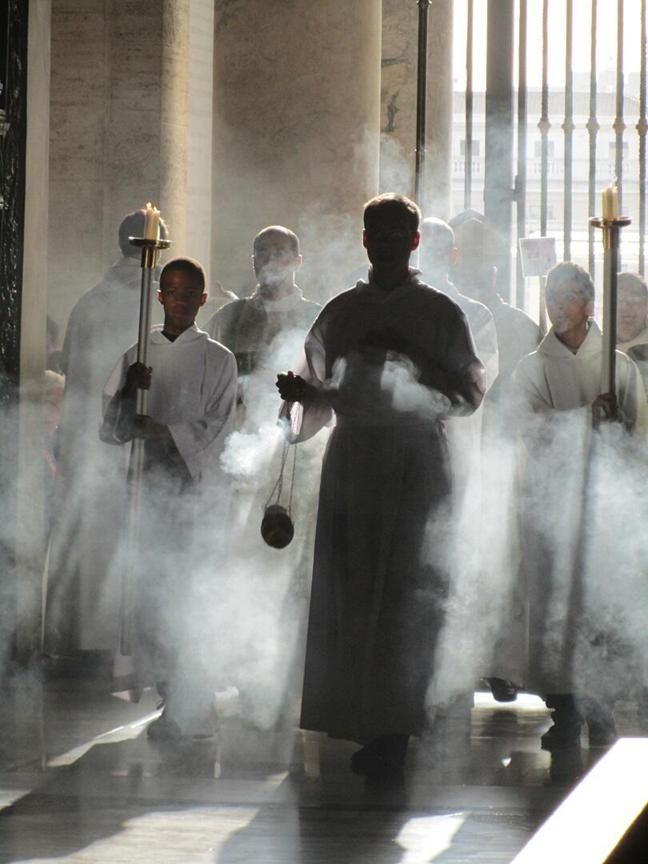Catholic Christianity

AI;DR: (AI; Didn't Read) -- I am interested in the constancy, conservatism, ritual, and aesthetics of the Catholic Christian church. I am still learning about it. I struggle most with how it is perceived by Protestants. Some of the essay below touches on good Catholic responses to Protestant critiques.
The content below was composed 88% by DeepSeek R1 and ChatGPT 4o.
The Catholic Church has a unique allure for those seeking beauty, tradition, and intellectual depth. Its rich aesthetic heritage—evident in grand cathedrals, sacred art, and the solemn rhythm of the Mass—offers a profound encounter with the divine. In contrast to modern religious services that often resemble "rock concerts with TED talks," the Catholic liturgy engages all the senses through chant, incense, and a focus on the sacraments, providing what has been described as "a tangible source of grace." [1]
At the heart of this experience is the Eucharist, where Catholics believe in the "Real Presence" of Christ. This doctrine, known as Transubstantiation, teaches that during Mass, the bread and wine are transformed into the actual body and blood of Christ, not merely symbols. As Pope Paul VI explained in his encyclical Mysterium Fidei, this change is "a unique and truly wonderful conversion." [2] This belief underscores a physical connection to the divine that sets Catholic worship apart.
The Church's ability to balance tradition with thoughtful evolution is another compelling aspect. Rooted in Christ and the apostles, it preserves ancient practices while adapting to the times. The magisterium—the Church's teaching authority—ensures doctrinal stability, preventing the fragmentation seen in Protestantism's numerous denominations. G.K. Chesterton referred to this as honoring "the democracy of the dead," respecting the wisdom of centuries past. [1] The Second Vatican Council exemplified this balance by allowing Mass to be celebrated in the vernacular while retaining Latin as a liturgical treasure. St. John Henry Newman, a notable convert, encapsulated this sentiment: "To be deep in history is to cease to be Protestant."
For those who appreciate language, Latin serves as a living link to the Church's heritage. Its precision ensures theological clarity across eras—terms like Transubstantiation convey complex ideas unambiguously. Medieval scholars like St. Thomas Aquinas wrote in Latin, and it remains the Vatican's official language for universal documents. Newman praised it as the "voice of the Church militant through time," reflecting its enduring power. Common Latin phrases still resonate in the liturgy, such as "Dominus vobiscum" ("The Lord be with you") and "Et cum spiritu tuo" ("And with your spirit"). [3] The phrase "Ite, missa est" ("Go, the Mass is ended") marks the conclusion of the Mass, sending the faithful forth to live out their mission. [4] These expressions connect modern worshippers to centuries of tradition and shared faith.
Despite these strengths, some Protestants question whether Catholics are truly Christian, often due to historical misunderstandings. This misconception arises partly from Catholics identifying solely as "Catholic" rather than "Christian," and partly from Reformation-era propaganda claiming the Church abandoned apostolic roots. To address this, Catholics are encouraged to clarify: "I am a Catholic Christian," and to share that the Church, founded by Christ, maintained unified worship for over a millennium. [5] Flannery O'Connor, a Catholic writer, affirmed the Church's resilience: "It is the only thing that is going to make the terrible world we are coming to endurable." This blend of beauty, continuity, and sacramental depth—what St. Augustine called a "hospital for sinners"—continues to draw seekers amid modern spiritual fragmentation.
REFERENCES:
- https://prodigalcatholic.com/2025/04/01/summary-and-review-of-aquinas-on-transubstantiation-the-real-presence-of-christ-in-the-eucharist-by-reinhard-hutter
- https://www.vatican.va/content/paul-vi/en/encyclicals/documents/hf_p-vi_enc_03091965_mysterium.html
- https://catholicus.eu/en/latin-phrases-every-catholic-should-know-eternal-wisdom-for-daily-life/
- https://en.wikipedia.org/wiki/Ite,_missa_est
- https://streetevangelization.com/blog/2013/03/03/why-so-many-protestants-do-not-consider-catholics-christian/
